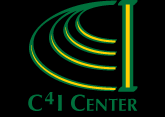
Symposium 2012 Home
Registration
2012 Agenda
Venue & Local Info
C4I
Home
GMU C4I Center-AFCEA Symposium
May 22-23, 2012
SESSION 3: Coalition Command and Control
_____________________
Multinational C2 Integration in Operations
ENDURING FREEDOM and IRAQI FREEDOM
Dr. Bob Elder
George Mason University
May 22, 2012 at 15:00
ABSTRACT
Operations ENDURING FREEDOM and IRAQI FREEDOM required development of both systems and processes to enable sharing of data among multiple coalition partners with different levels of access to one another's information. Lt General (Retired) Robert Elder's presentation describes the challenges and solutions developed during the major combat phase of the operations in Iraq and Afghanistan as a foundation for the presentations from other panelists who will address subsequent research and development efforts to improve future coalition C2 interoperability in times of peace and war.
BIO
_____________________
Multinational Information Sharing at DISA
Rajeev Parekh
MITRE, Inc.
May 22, 2012 at 15:00
ABSTRACT
The DISA MNIS PMO was established to improve the sharing of vital information with coalition partners in today's fast-paced dynamic warfighting environment. Mr. Matthew Kisner's presentation describes DISA's solution to information sharing with non-traditional partners in stability operations, humanitarian assistance and disaster relief (HA/DR), and Theater Security Cooperation (TSC). In addition, the presentation provides insight into the future of the coalition information sharing environment and DISA MNIS PMO's role in providing some of the foundational capabilities.
BIO
RAJEEV PAREKH is a Multidisciplinary Systems Engineer for The MITRE Corporation within the Center for Integrated Intelligence Systems (CIIS). He is currently the MITRE project lead supporting the US Battlefield Information Collection and Exploitation Systems (US BICES) Project Office at the Office of Under Secretary of Defense for Intelligence (OUSD(I)). Over the past 8 months, Mr. Parekh has been supporting the US BICES Project office in the standup of the Global US BICES capability. Prior to arriving at OUSD(I), Mr. Parekh was the project lead for Multinational Information Sharing Portfolio Management Office (MNIS PMO) at the Defense Information Systems Agency (DISA) supporting classified and unclassified information sharing initiatives. Mr. Parekh also spent seven years as a US Navy Submarine Officer and holds a Masters Degree in Systems Engineering from the Johns Hopkins University and a Bachelor's of Science in Engineering (Electrical Engineering) from University of Michigan.
_____________________
The Collaborative International
Command and Control Research
Testbed:
A Simulation Based Environment
for Concept Development and Assessment
Dr. Michael Hieb
C4I Center
George Mason Univeristy
May 22, 2012 at 15:00
ABSTRACT
George Mason University (GMU) and the Aeronautics Institute of Technology (ITA) have developed a testbed that consists of an M&S environment in order to developand verify new technologies for Command and Control operations. In 2012 the focus of the Testbed will be to support PhD Research by providing an M&S environment. This environment will be used to Evaluate Planning Tools and Cyber Impact Assessments during a simulated operation. As new Command and Control Services are developed, we will be incorporating current simulation technologies to perform new capabilities in the areas of Course of Action Development, Predictive Analysis and Visualization.
BIO
MICHAEL HIEB is a Research Associate Professor at George Mason University's Center for Excellence in Command, Control, Communications, Computers and Intelligence (C4I Center) and a Technical Director for the Army's Simulation to C4I Overarching IPT (SIMCI OIPT). From 1997 to present Dr. Hieb has worked to formalize the information required for Command and Control (C2) of both Military Organizations as well as Civil and Non Governmental Organizations. This has involved both NATO and IEEE working groups and has spanned the fields of Computer Science, Networking, Semantics, and Computational Linguistics. Dr. Hieb has over 100 Publications and has presented his research on Command Intent to many International C2 Forums. Dr. Hieb also was the Principal Investigator for several major projects at the C4I Center, including Research for the Army Geospatial Center called on integrating C2, M&S and Geospatial functionality. He received his PhD in Information Technology from George Mason University in 1996, a MS in Artificial Intelligence & Human Factors from George Washington University and a BS in Nuclear Engineering from UC Santa Barbara.
_____________________Networking to Enable Coalition Operations
Howard Schue
Technology Strategies and Alliances Corporation
May 22, 2012 at 15:00
ABSTRACT
Collaboration with coalitions has become increasingly important in warfare for political, access and overflight, and operational capabilities reasons. However, new systems and technologies that enable effective networked operations are not always available or affordable to coalition partners. Adequate realistic training of U.S. forces and coalition partners is not always undertaken. Instituting more effective coalition net-centric operations will require the appropriate communications, including data links; collaboration with coalition partners in order to best take advantage of their capabilities; exploitation of network capabilities to compensate for inadequacies of participating systems; and the use of collaborative multi-level secure information interchange among coalition command centers. An evolutionary and affordable network-based collaborative planning and execution capability for both the U.S. and its coalition partners can be designed and implemented, which will, in turn, yield a more effective total coalition force in future operations.
BIO
HOWARD SCHUE is a Partner and Executive Vice President of Technology Strategies and Alliances Corporation specializing in line and marketing management, new business development, and strategic planning in the aerospace/defense and the command, control, communications and intelligence (C3I) industries. Mr. Schue served on the 1993 Defense Science Board Summer Study on Global Surveillance and on the 1994 Summer Study on Information Architecture for the Battlefield. He led the Air Force Scientific Advisory Board study on Networking to Enable Coalition Operations. He is a member of the American Institute of Aeronautics and Astronautics, The Armed Forces Communications and Electronics Association, the National Military Intelligence Association, the American Society of Military Comptrollers, the Air Force Association, the Association of Old Crows, the Reserve Officers Association, the Air War College Alumni Association, the Planetary Society, the West Point Association of Graduates, and the Army Athletic Association.
_____________________
